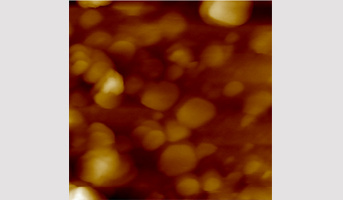Seminar IJPB /SPS Prof Bernard Carroll
Nanoparticle-mediated delivery of nucleic acids and proteins into intact plants has the potential to modify metabolic pathways and confer desirable traits in crops. We have shown that layered double hydroxide (LDH) nanosheets coated with lysozyme and less than 50 nm in diameter are actively taken up into the root tip, root hairs and lateral root junctions by endocytosis, and translocate via repeated cycles of an active membrane trafficking pathway and apoplastic diffusion through the cell wall matrix of plants (Yong et al., 2025). Lysozyme coating enhanced nanosheet uptake by (1) loosening the plant cell wall and (2) stimulating the expression of endocytosis and other membrane trafficking genes (Yong et al., 2025). The lysozyme-coated nanosheets efficiently delivered synthetic mRNA, double-stranded RNA, small interfering RNA and plasmid DNA up to 15 kb in size into tobacco roots, and also functional nucleic acids into leaves, callus, flowers and developing pollen of dicot and monocot species (Yong et al., 2025).
In our current research, we have used LDH nanoparticles coated with lysozyme and other proteins to deliver genes that encode mRNA containing mobile RNA motifs, including transfer RNA (tRNA)-like structures (TLS) and the Short Variable Region (SVR) of the Arabidopsis chaperone gene HSC70.1 into the roots of intact plants. These mobile TLS and SVR motifs have been shown to confer graft-transmissibility to endogenous mRNA in Arabidopsis (Zhang et al., 2016; Yang et al., 2023). Remarkably, the protein-coated nanoparticle delivery of genes harboring mobile RNA motifs into the roots enabled the systemic expression of the encoded protein in the shoots for at least a week after root treatment. We have also identified a nanoparticle coating protein that is superior to lysozyme. Nanoparticles coated with this protein show enhanced gene delivery and expression of exogenous genetic material in plants. Collectively, our data indicate that protein-coated LDH nanoparticle delivery of mobile RNA has the potential to enable non-GM trait modification in intact plants of both model and crop plant species.
Yong J et al. Nature Plants 2025, 11:131.
Zhang W et al. Plant Cell 2016, 28:1237.
Yang L et al. New Phytol 2023 237:2404.
Bernard Carroll, School of Chemistry and Molecular Biosciences, The University of Queensland, Brisbane, Australia
Invitation : Hervé Vaucheret, "Epigenetics and small RNAs" epiARN team
In connection with the research developed at the Institute Jean-Pierre Bourgin for Plant Sciences.
Back
